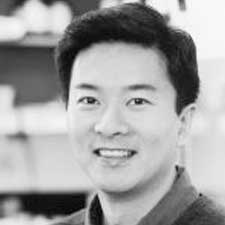No record yet.
Popular publications
- A capping-independent function of BCDIN3 in stabilizing 7SK snRNA and facilitating the assembly of 7SK snRNP. [Y. Xue, Z. Yang, R. Chen, and Q. Zhou. Submitted]
- A La-related protein modulates 7SK snRNP integrity to suppress P-TEFb-dependent transcriptional elongation and tumorigenesis. [N. He, N.S. Jahchan, E. Hong, M. A. Bayfield, R. J. Maraia, K. Luo, and Q. Zhou (2008). Mol. Cell29, 588-599]
- PP2B and PP1α cooperatively disrupt 7SK snRNP to release P-TEFb for transcription in response to Ca2+ signaling. [C. Chen, M. Liu, H. Li, Y. Xue, W.N. Ramey, N. He, N. Ai, H. Luo, Y. Zhu, N. Zhou, and Q. Zhou (2008) Genes & Dev.22, 1356-1368]
- Brd4 recruits P-TEFb to chromosomes at late mitosis to promote G1 gene expression and cell cycle progression. [Z. Yang, N. He, and Q. Zhou (2008) Mol. Cell. Biol. 28, 967-976]
- Tat competes with HEXIM1 to increase the active pool of P-TEFb for HIV-1 transcription. [M. Barboric, J. H. N. Yik, N. Czudnochowski, Z. Yang, R. Chen, X. Contreras, M. Geyer, B. M. Peterlin, and Q. Zhou (2007) Nuc. Acids Res. 35, 2003-2012]
- Modulation of a P-TEFb functional equilibrium for the global control of cell growth and differentiation. [N. He, A. C. Pezda and Q. Zhou (2006) Mol. Cell. Biol. 26, 7068-7076]
- The Yin and Yang of P-TEFb regulation: Implications for HIV gene expression and the global control of cell growth and differentiation. [J. H. N. Yik and Q. Zhou (2006)Microbiol. Mol Biol. Rev. 70, 646-659]
- Recruitment of P-TEFb for stimulation of transcriptional elongation by bromodomain protein Brd4. [Z. Yang, J. H. N. Yik, R. Chen, M. K. Jang, K. Ozato and Q. Zhou (2005) Mol. Cell 19, 535-545]
- A human immunodeficiency virus type 1 Tat-like arginine-rich RNA-binding domain is essential for HEXIM1 to inhibit RNA polymerase II transcription through 7SK snRNA-mediated inactivation of P-TEFb. [J. H. N. Yik, R. Chen, A. C. Pezda, C. S. Samford and Q. Zhou (2004) Mol. Cell. Biol. 24, 5094-5105]
- Phosphorylated P-TEFb is tagged for inhibition through association with 7SK snRNA. [R. Chen, Z. Yang and Q. Zhou (2004) J. Biol. Chem. 279, 4153-4160]
- Inhibition of P-TEFb (CDK9/cyclin T) kinase and RNA polymerase II transcription by the coordinated actions of HEXIM1 and 7SK snRNA. [J. H. N. Yik, R. Chen, R. Nishimura, J. L. Jennings, A. J. Link and Q. Zhou (2003) Mol. Cell 12, 971-982]
- The 7SK small nuclear RNA inhibits the Cdk9/cyclin T1 kinase to control transcription. [Z. Yang, Q. Zhu, K. Luo, and Q. Zhou (2001) Nature 414, 317-322]
- Stimulatory effect of splicing factors on transcriptional elongation. [Y. Fong and Q. Zhou (2001) Nature 414, 929-933]


